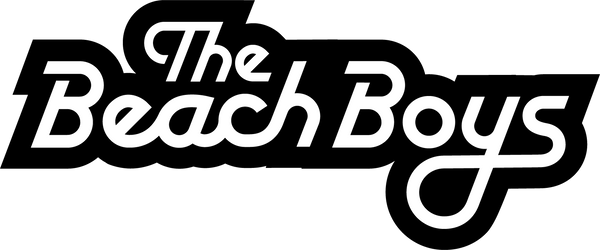By Howie Edelson

On July 13th, 1964, Capitol Records released All Summer Long – The Beach Boys’ sixth album in only 22 months. Most famously, the LP, produced by Brian Wilson, contained the band’s first Number One single – the massive two-week chart-topper “I Get Around” and featured seven other collaborations between Wilson and his cousin and frontman, Mike Love. All Summer Long hit the Top 10 of the Billboard 200 albums chart on August 15th, entering at Number Seven before peaking at Number Four for a solid month. All told, it stayed in the Billboard Top 10 for 16 weeks. Amazingly, the week it fell out of the Top 10, the band’s sole Number One album of the 1960’s – Beach Boys Concert – kicked off its month-long reign on top of the Billboard 200.

Over the decades, All Summer Long has been considered not only the greatest concept album about California youth – but a global calling card for American life. The group captured their times perfectly with a collection steeped in hope, promise, and real excitement. The Beach Boys were standing tall as the British Invasion flooded the U.S. airwaves and could pride themselves as being among America’s most innovative songwriters and progressive record makers. Barring their labelmates, The Beatles, no other self-contained British Invasion group was writing and recording tighter ensemble rock than The Beach Boys in 1964.
What All Summer Long shows is a band not bowing to the new sounds from across the Atlantic -- but building on American music emanating from the East Coast by the likes of The Four Seasons and reinventing doo-wop by way of Hawthorne Boulevard (and just left of heaven). For the most part, All Summer Long highlighted all of The Beach Boys’ strengths. The Beatles seemed as though they were dropped on our shores from outer space – but The Beach Boys lived right down your block. There was (and is) a definite difference and both bands served an entirely different purpose musically and culturally. They remain a perfect complement to the other.
"I Get Around," a tune publicly endorsed by Mick Jagger — backed with “Don’t Worry Baby” from that year’s previous album, Shut Down Volume 2 — was released on May 11th, 1964. That July 4th, “America’s Band” knocked Peter & Gordon's John Lennon and Paul McCartney-written "World Without Love" from Number One, going on to hold the top spot for two weeks. It was the first of four Number One singles the group eventually scored alongside "Help Me, Rhonda" (1965), "Good Vibrations" (1966), and "Kokomo" (1988).
Over the years, many fans have taken notice that there were so many missed opportunities for Capitol to pull hit singles off All Summer Long, with no better proof than "Little Honda," which was a solid Top 10 hit later that year for The Hondells. The album’s title track would’ve made for the ultimate end of summer classic that it eventually became a decade later when brilliantly featured in the end credits of George Lucas’ 1973 coming of age favorite, American Graffiti.
Other highlights on All Summer Long include the band’s final surfing song of the “striped shirts” era – “Don’t Back Down”; a Carl Wilson guitar work-out on “Carl’s Big Chance”; the Wilson/Love beauty “Girls On The Beach” – featuring a sandpapery Dennis Wilson cameo that undoubtedly made countless hearts beat faster; as well as “Drive-In” utilizing a backing track by L.A.’s top session men; alongside an incredible cover of the Doc Pomus/Mort Shuman-written gem, “Hushabye,” which not only, arguably, betters The Mystics’ original 1959 version – but would have absolutely had strong legs on the singles charts at the time. All Summer Long features the last Brian Wilson/Gary Usher team-up in the band’s canon, “We’ll Run Away.” Its 12/8-time signature and angst-ridden lovelorn lyrics describing a couple planning to elope would soon give way to the romantic maturations that would be celebrated in The Beach Boys’ 1966 masterpiece, Pet Sounds.
On September 21st, 1964, Capitol plucked four songs from All Summer Long to serve as the group’s sole American EP – Four By The Beach Boys, featuring “Wendy” and “Don’t Back Down” backed by “Little Honda” and “Hushabye.” Due to their appearance, two of the tracks found their way onto the Billboard Hot 100 with “Wendy” hitting Number 44 after garnering extra exposure during the band’s September 27th, 1964 appearance on The Ed Sullivan Show — and “Little Honda” topping out at Number 65.
Brian Wilson remembered the genesis of The Beach Boys’ first chart-topper and global smash, “I Get Around”... Carl suggested we use two guitars... mixing the guitars and pianos and voices all together.”
Mike Love: “Brian didn’t make a song like ‘I Get Around’ again. He’d always change the tempo... Even at the height of Beatlemania, we still had ‘I Get Around’ as a Number One record.”


Al Jardine: “Each song, or each track selection, is a special little messenger. And they convey a certain optimism...”

Carl Wilson: “The music on the face of it is very simple... musically speaking, a lot of it is quite deep and complex.”
Dennis Wilson (1976): “He [Brian] is a master, musically. I am dumbfounded at him... When Brian plays something for us, we just gape. It gets very emotional.”
Six decades after the release of All Summer Long, we’re still talking about this album, still listening to the songs... These songs reflect a simpler time – but also a timeless simplicity.
Here's to The Beach Boys’ joyous sounds surrounding you All Summer Long ‘24. Throw on your tee-shirts, cut-off’s, and a pair of thongs. (Be careful of spilling those Cokes...)
Have a happy summer!!!
Listen to The Beach Boys!!!!!!

